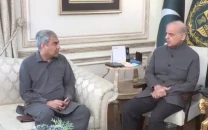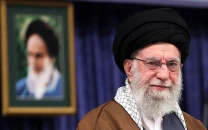PM acts to improve economic governance
In the past, the PBS was kept at an arm’s length from the Finance Division and the Planning Commission

pervez.tahir@tribune.com.pk
Like other oil importing economies, Pakistan’s energy woes began with the first oil price jump in 1973-74. Most governments started taking an integrated view of the energy policy and planning. Not so in Pakistan. She went into the opposite direction. There used to be a ministry of fuel, power and natural resources. Before the second oil price shock in 1979, this ministry was divided into separate entities — ministry of petroleum and natural resources and ministry of water and power. The Pakistan Atomic Energy Commission and, later, the Private Power Infrastructure Board tended to go their own separate ways. Regulatory authorities like Ogra and Nepra were also seen as obstacles to rapid progress. Several gas and power companies seem to have their own brands of energy policies. This is where we stood, until Mr Abbasi made it emphatically clear that “there is no room for non-optimal solution in our energy framework”. In addition to the two ministries working at cross-purposes, planning and finance ministries threw sand in the oil by slowing down the project approval and release of funds. In October 2015, Water and Power Minister Khawaja Asif and Petroleum and Natural Resources Minister Shahid Khaqan Abbasi had angrily demanded the abolition of the Planning Commission, declaring it “detrimental to national interest”. The planning minister thought that project scrutiny irked other ministries. Let’s hope that with the creation of ministry of energy, the country has seen the last of these coordination failures in a sector constraining the economy most.
As for the Planning Commission being under the PM, it is hoped that the idea is not to get rid of it eventually. The commission has issues of core professional competencies, directionlessness and low political acceptance of planning. Largely because of CPEC, there is a massive portfolio of public-sector projects. To maximise gains, these projects must stand the test of economic scrutiny and their financing ought to be in a macroeconomic framework of debt sustainability and fiscal prudence. This requires that the Planning Commission not only leads but also sees to it that it is followed. The tutelage of the PM office is necessary to achieve this objective. As a former Planning Commission person, this writer can vouchsafe that it was most effective when the chief executive headed it — in form as well as substance.
Last, but not the least, is the decision regarding the ministry of statistics. In theory, the Pakistan Bureau of Statistics (PBS) is an independent body. Under the rules of business, it can liaise with the federal government for budget and policy matters only through a division, which existed in the form of statistics division. The problem is that this division was part of the ministry of finance. As the steward of the economy, the finance ministry has a direct interest in the data generated by PBS. The new arrangement avoids this conflict of interest. In the past also, the PBS was kept at an arm’s length from the Finance Division and the Planning Commission. A lot more needs to be done to protect the integrity of data. An independent ministry of statistics is, however, an important first step.
Published in The Express Tribune, August 11th, 2017.
Like Opinion & Editorial on Facebook, follow @ETOpEd on Twitter to receive all updates on all our daily pieces.














COMMENTS
Comments are moderated and generally will be posted if they are on-topic and not abusive.
For more information, please see our Comments FAQ